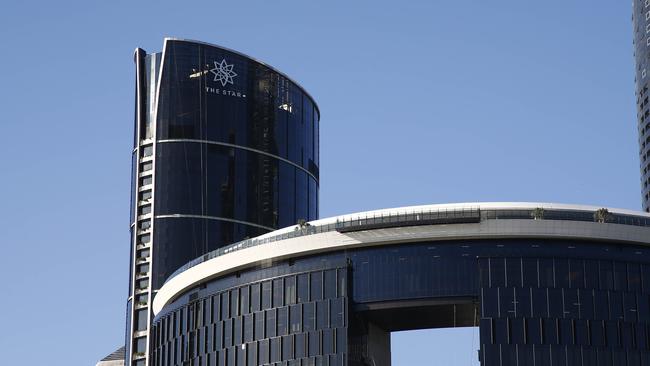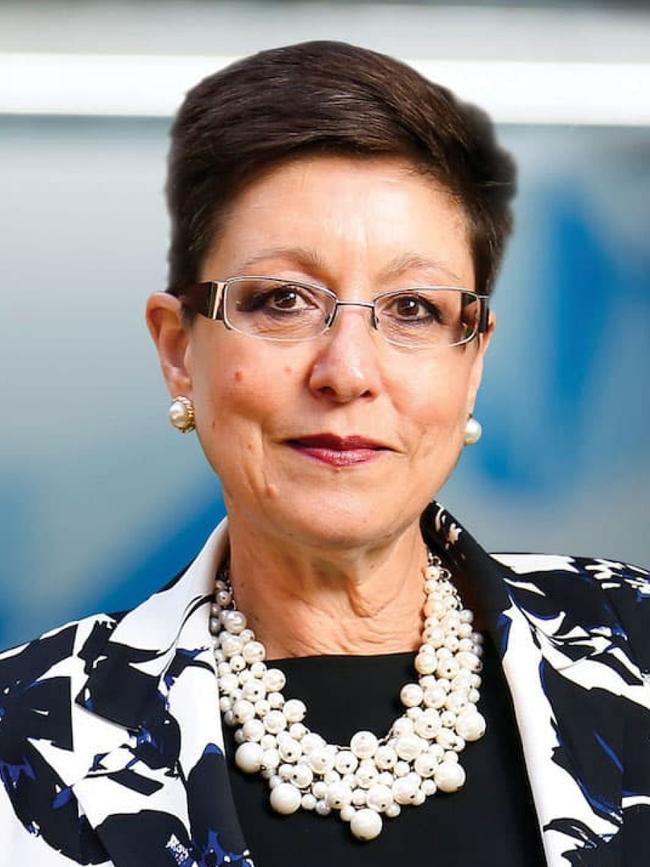Star Entertainment’s losses hit $27m in first four months of fiscal 2025 amid reforms
Angry Star Entertainment shareholders have delivered a first strike against the troubled gaming group’s remuneration report as it revealed a $27m loss for the first four months of FY25.

The Star Entertainment Group’s losses have blown out further as angry shareholders at a marathon AGM initiated a first strike against a remuneration report recommended by an under siege Board.
After a tumultuous 12 months with the findings of Bell Inquiry Two putting a question mark over the group’s casino operations and a record share price plunge the Board faced the music at Star Brisbane on Thursday telling shareholders they were determined to get the company back on its feet.
New chief executive Steve McCann said there was continued weakness in the operating performance of the group.
The AGM was told that the unaudited loss for October before significant items was $8.5m while the total in the first four months of FY25 to $27m.
“This is attributable to the ongoing challenging consumer environment and changes in business practices which continue to weigh heavily on gaming, particularly in the premium player segment,” he said.
However, angry shareholders delivered a first strike against the troubled company’s remuneration report, with 43 per cent of votes cast against it.
All other resolutions put to the meeting were carried but there was a large protest vote with 27.2 per cent against the one-off grant of performance rights Mr McCann and 38.8 per cent against approving potential retirement benefits for him.

Mr McCann said he joined Star before the report from the Bell Two Inquiry had been received, and the company was in a “precarious position” and revenue was dropping rapidly at the same time that costs were escalating.
He said the reputation of the company and relationship with regulators was poor and progress on the remediation plan had been inadequate. The risk of losing gaming licences was high.
“We have a difficult road ahead and The Star remains in an extremely challenging position,” he said.
“We have made progress on a range of important issues, have reset our remediation plan and improved our transparency and relationship with regulators. However, revenue has continued to decline significantly while the costs of our transformation and the cost of the external advice and assistance we have required have continued to be at inflated levels.”
In the past year The Star shares have fallen by 62 per cent and on Thursday close at a record low of 20c, a 7.1 per cent fall on the day.
Mr McCann said since the implementation of mandatory carded play and cash limits at The Star Sydney on August 19, the daily average revenue is down 15.5 per cent compared to the daily average revenue for the four weeks prior to implementation.
“The Star team is working hard to improve our technology and systems to ensure regulatory compliance while improving the impact of this transition on our customer experience,” he said.
Following the findings of the Bell Two inquiry, the NSW independent Casino Commission (NICC) allowed the group to keep its Sydney casino operating under government supervision for the time being — and not to cancel its licence.
Mr Bell’s first inquiry in 2022 resulted in the installation of a special manager to run Star’s casinos in both Sydney and Queensland, after he found breaches of money laundering rules and other misconduct.

The inquiries also resulted in a raft of operational reforms and changes to the Board with Mr McCann replacing Robbie Cook as chief executive and Anne Ward replacing David Foster in April.
In September The Star’s auditor EY raised several red flags last year about the ability of the company’s debt-laden Queensland operation to continue as a going concern.
The Star will have to stump up about $360m equity between 2025 and 2027 for Queen’s Wharf Brisbane, where it will also have to refinance its share of $1.3bn debt with a December 2025 maturity.
However, the company has confirmed a new $200m debt facility and it is trying to raise a further $150m in capital from external sources to keep it afloat.
Mr McCann said they were at a critical point in the company’s liquidity with the company experiencing negative cashflow on a monthly basis.
“We need time to deliver the reset remediation plan and to develop our strategy before we can return the business to profitability – and for that we’re asking for your ongoing support and for that of our lenders and other stakeholders,” he said.
Ms Ward told shareholders that the Board has taken decisive action in the wake of Bell Two Inquiry into their suitability to hold a casino licence.
That includes their remediation plan being revised, reset and approved with conditions by the Queensland Government, implementing a decentralised operating model and working to rebuild trust and healthy relationships with regulators.
“I know that shareholders have heard similar assertions and promises to act in the past, but I assure you we have already taken action. These important changes are well progressed and are showing promise,” she said.
“Importantly, we have reflected on past failings, embraced feedback and are acting with the benefit of learnings to date.”







To join the conversation, please log in. Don't have an account? Register
Join the conversation, you are commenting as Logout